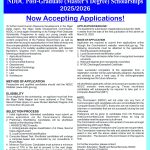As the world is now in a computer era and the use of artificial intelligence is in Vogue, the need for storing more data is then necessary but the need for professionals who can help to crack these data and bring out useful info from them is also paramount. As technology continues to develop at a rapid rate, the skills needed to work with that technology need to evolve faster with the continuous change or they will become obsolete.
Table of Contents
What is Data Science?
Data science is said to be a field of science that makes use of algorithms, various scientific tools, and processes to extract information from both structured and unstructured data. Often times, data science is compared with BI (Business Intelligence), although there are similarities between the two as they are both involved with data.
Business Intelligence (BI) deals with the analysis of previous data on business problems that is, it allows you to take data from both internal and external sources then prepare it and runs it in a way to create dashboards to answer business questions and problems. While, Data Science has a more forward approach as it focuses on analyzing the past and current data, predicting the outcomes with the sole aim of making information.
How to Start a Career in Data Science
Who is a Data Scientist?
A data scientist is someone who basically deals with data. A data scientist job description includes the extracting and interpreting of data to get information. This is done by the use of both tools and methods from statistics and machine learning. They work with several disciplines related to mathematics, statistics, and computer science. Data scientists make use of the latest technologies in finding solutions and they crack complex data and present them in a more useful form instead of the raw data thereby, reaching conclusions that are important for an organization’s development.
Starting a career in data science encompasses a lot of skills and discipline. With the major set of disciplines been mathematics, statistics, and computer science. Aside from educational qualification, there also other skills required of a data scientist and some of them are outlined below:
- Programming skills in R or Python
- Advanced practical knowledge of data science and machine learning
- Excellent analytical and learning skills
- Ability to start initiatives and must have a growth mindset
- Integrity and confidentiality
- Desire to drive innovation and generate unique solutions;
- Ability to track and share external trends, best practices, or ideas
- Accountability
- Ability to thrive under pressure and fast pace
- Strong written and verbal communication skills
- Leadership skills
- Ability to develop and leverage relationships with stakeholders to achieve a company’s business goals
- Ability to inspire others and support others development to achieve full potential
Some Career Paths in Data Science
Data science is a very broad field with varied career roles. As an aspiring data scientist, it is important to figure out what role suit you best and how you can function efficiently when employed. If you are a data scientist and looking for a career change, this is also for you as you can check out more options for a career scientist and make your choice. There are three main job titles in data science and they are; Data Analyst, Data Engineer, and Data Scientist.
Data Analyst
This is like an entry-level position in the data science field. A data analyst’s job description is to search for a company or industry data and use it to answer business questions, and then communicate those answers to other teams in the company to be acted upon. Over time, data analysts often work with a variety of different teams within a company; you may work on marketing analytics one month, then help the CEO use data to find reasons the company has grown the next. You will typically be given business questions to answer rather than asked to find interesting trends on your own, as data scientists often are, and you will generally be tasked with mining insights from data rather than predicting future results with machine learning.
Skills required: Specifics vary from position to position, but in general, if you are looking for data analyst roles, you will want to be comfortable with:
- Intermediate data science programming in either Python or R, including the use of popular packages
- Intermediate SQL queries
- Data cleaning
- Data visualization
- Probability and statistics
- Communicating complex data analysis clearly and understandably to people with no statistics or programming background
Career prospects: Data analyst is a broad term that encompasses a wide variety of positions, so your career path is fairly open-ended. One common next step is to continue building your data science skills often with a focus on machine learning and work toward a role as a data scientist. Alternatively, if you are more interested in software development, data infrastructure, and helping build a complete data pipeline, you could work toward a position as a data engineer. Some data analysts also use their programming skills to transition into more general developer roles. If you stick with data analysis, many companies hire senior data analysts. At larger companies with data teams, you can also think about working toward management roles if you are interested in developing management skills.
Data Scientist
Are in charge of building machine learning models to make accurate predictions about the future based on past data. A data scientist often has more freedom to pursue their own ideas and experiment to find interesting patterns and trends in the data that management may not have thought about. As a data scientist, you might be asked to assess how a change in marketing strategy could affect your company’s bottom line. This would entail a lot of data analysis work (acquiring, cleaning, and visualizing data), but it would also probably require building and training a machine learning model that can make reliable future predictions based on past data.
Skills required: All of the skills required of a data analyst, plus:
- A solid understanding of both supervised and unsupervised machine learning methods
- A strong understanding of statistics and the ability to evaluate statistical models
- More advanced data-science-related programming skills in Python or R, and potentially familiarity with other tools like Apache Spark
Career prospects: If you are working as a data scientist, your next job title may well be a senior data scientist, a position that will earn you about $20,000 more per year on average. You might also choose to specialize further in machine learning as a machine learning engineer, which would also bring a pay raise. Or, you can look more toward management with roles like a lead data scientist. If you want to maximize earnings, your ultimate goal might be a C-suite role in data such as chief data officer although these roles require management skills and may not involve a lot of actual day-to-day work with data.
Data Engineer
A data engineer manages a company’s data infrastructure. Their job requires a lot less statistical analysis and a lot more software development and programming skill. At a company with a data team, the data engineer might be responsible for building data pipelines to get the latest sales, marketing, and revenue data to data analysts and scientists quickly and in a usable format. They are also likely responsible for building and maintaining the infrastructure needed to store and quickly access past data.
Skills required: The skills required for data engineer positions tend to be more focused on software development. Depending on the company you are looking at, they may also be quite dependent on familiarity with specific technologies that are already part of the company’s stock. But in general, a data engineer needs:
- Advanced programming skills (probably in Python) for working with large datasets and building data pipelines
- Advanced SQL skills and probable familiarity with a system like Postgres
Career prospects: Data engineers can move into more senior engineering positions through continue, or use their skills to transition into a variety of other software development specialties. Outside of specialization, there is also the potential to move into management roles, either as the leader of an engineering or data team (or both, although only very large companies are likely to have a sizable data engineering team).
Below are the other seven different career roles in data science which we have explained in order to help you make your decision.
- Machine Learning Engineer: these professionals are also known as software engineers. They are in charge of assessing and the various analyses of the data scientist and making it into the software that can be used by different companies and organizations.
- Quantitative analyst or Data analyst: these sets of professionals make use of statistical analysis to answer questions on financial problems and make predictions about the financial market. The qualitative analyst gathers information for their company use by utilizing large data sets.
- Business analyst: a business analyst helps companies answer questions by solving their business-related problems through the use of the company’s data. The job description of a business analyst includes capturing and analyzing data and also making good recommendations concerning the business to the company.
- Systems Analyst: this system analyst deals with the identifying of organizational problems, and then planning the changes of the new systems applied to solve those problems. They majorly make use of programming skills to oversee the implementation of the new systems.
- Data Warehouse Architect: they are in charge of the company’s data storage system and this is made possible with the use of the SQL skills. Data warehouse architects are grouped under data engineering because of the tech skills needed for work.
- Business Intelligence Analyst: A business analyst professional is one who is focused on analyzing the different market and business trends. They normally make use of the Python or R programming skills to make this analysis.
- Statistician: formally known as data scientists also deal with data using programming skills. The required skills can vary quite a bit from job to job, but they also will require a solid understanding of probability and statistics. Programming skills, especially in a statistics-focused language like R, are likely to be of use as well. A statistician will not typically be expected to know how to build and train machine learning models although they may need to understand the mathematical principles behind it.
Watch Now! – Top 10 Highest Paying Jobs In Data Science Career
Essential Tips Needed to Start a Career in Data Science
As the world continues to move globally, starting a career in data science is a good option. Data science is currently rated as the best of the 21st-century job. With more and more data being used every day, the need for data scientists keeps rising. If you then want to start a career in data science what are the necessary things to out in place. In this article, we have compiled some of the essential tips needed for you to kick start your career in data science.
Educational qualification: for you to become a data scientist, the minimum educational qualification required is a bachelor’s degree in a related field of computer science, pure sciences, and so on. Obtaining a master’s or PhD degree is an added advantage but not compulsory to start your career. Once these qualifications are met, the next step to becoming a data scientist is to start applying for an entry-level job in the data science field and gradually move up the career ladder.
Technical skills (SQL coding and Python coding): Python is one of the most popular languages used for coding in data science. Data scientists make use of python language coding more because it is versatile and you can find any of its datasets you need on Google. It is also possible to import SQL tables into your code. SQL (Structured Query Language) is also used by data scientists as it helps to carry out operations such as delete, add or extract from a database. It is also useful in carrying out analytical functions and help to transform database structures too. You need to be proficient in the use of both Python and SQL coding languages, there are also other coding languages which you will need, but these are the most common. Learning these languages and putting them to use would help you to understand relational databases and also boost your work profile as a data scientist.
Machine learning and AI: as a data scientist and you want your work to stand out, you have to be proficient in machine learning techniques such as; decision trees, logistic regression supervised machine learning, and so on. Learning these skills would enable you to be able to solve different data science problems that are based on organizational outcomes. As a data scientist works with a lot of data, you would need to be conversant with machine learning for you to excel in your field.
Communication skills: as companies and different organizations are in search of a data scientists to help them translate their data from its natural form into less complex terms for understanding, therefore as an aspiring data scientist, you need to possess good communication skills in order to interpret your findings in clear language. Most business owners are not interested in your analysis or how you crack the data, all they want is how to use that data in which you have analyzed and explained for business purposes.
Team player: as a data scientist, you have to be a team player, you can never work alone, therefore you have to learn to carry others along in whatever you do. Most of the time, you may have to work with people who do not understand what you are doing but the ability to be able to explain and carry them along is very important to your work. Make use of clear terms when dealing or working with other members of your organization, you have to show good communication skills and other interpersonal relationship skills to be able to perform your duties well. Above all, learn to communicate properly to the best understanding of your colleagues in the work place.
If after assessing your Educational qualifications and other necessary skills needed by a data scientist to perform well and you are set on starting your career in the data science field, below are 5 essential tips for you to follow in attaining success in your choose field.
- Choose your preferred career: in data science, there are a number of varied roles available such as; a machine teaching engineer, a data engineer, a data visualization expert, a data architect amongst others. Your choice of a career role should always be dependent on your experience and background. You can also talk to people who are already working in the industry to help you identify what career path are available and which would be suitable for you. Try to figure out what your strengths and interests are, doing this would definitely help you find a balance.
- Take a course: taking a course on data science would not only boost your qualifications but also help you learn more about the role you want to undertake. Taking up different courses would help you to fully understand the requirements of the role and what qualifications you may need for it. Some of the platforms where you can get data science courses you can take up include; Coursera Data-Driven Decision Making, EdX Data Science Essentials, provided by Microsoft, Udacity Intro to Machine Learning.
- Keep learning: after graduating from school, your acquired degree should not stop you from learning. Continuous learning makes the brain stay active. Therefore, as you search for your career role as a data scientist, you have to keep learning because new ways of how things are done to keep developing. New tools are constantly coming out, the skills that are defined as data science skills are constantly changing so by learning, and you will stay on top of these skills, and improve yourself to any potential employers. As much as the theory of a data scientist job is important, it is also very necessary to set yourself up for getting a job by setting time aside to work on different related projects. They will allow you to practice what you will be creating in a data science job, help to improve your portfolio and build your confidence when attempting to score an interview.
- Attend events and peer meetups: No matter what stage youre at in your career, its important to have industry peers to lean on for advice and support. Why is this important? This is because a peer group can help keep you motivated, overcome hurdles, and avoid the same pitfalls of others who have come before you. If youre new to the industry, it can be hard to meet like-minded individuals, so you should set time aside to find meetups and events that are relevant to your career.
- Build your work profile: As an aspiring data scientist, it’s important to build your work profile in the data science industry as it will make it easier to access new opportunities once they are available. One way to do this is by sharing your work with other professionals in the same field. You can also create and constantly update your social media profiles, most especially your LinkedIn profile as it is used mainly to connect to other professionals in your field. Also, the LinkedIn profile will help you to get connected to people of like minds and as well make you visible to employers.
In conclusion, the future definitely belongs to data scientists because more data are been used and we are in constant need of data scientists to help us interpret these big data in useable forms for our business and personal needs. Starting a career in data science does not require you to have a lot of qualifications with the minimum being a bachelor’s degree. Other skill sets needed by a data scientist are an innovative mindset, the ability to communicate and create answers for tough problems. In as much as people continue to make use of data, definitely taking up a data scientist career is a way of staying relevant in the workforce for years to come.









